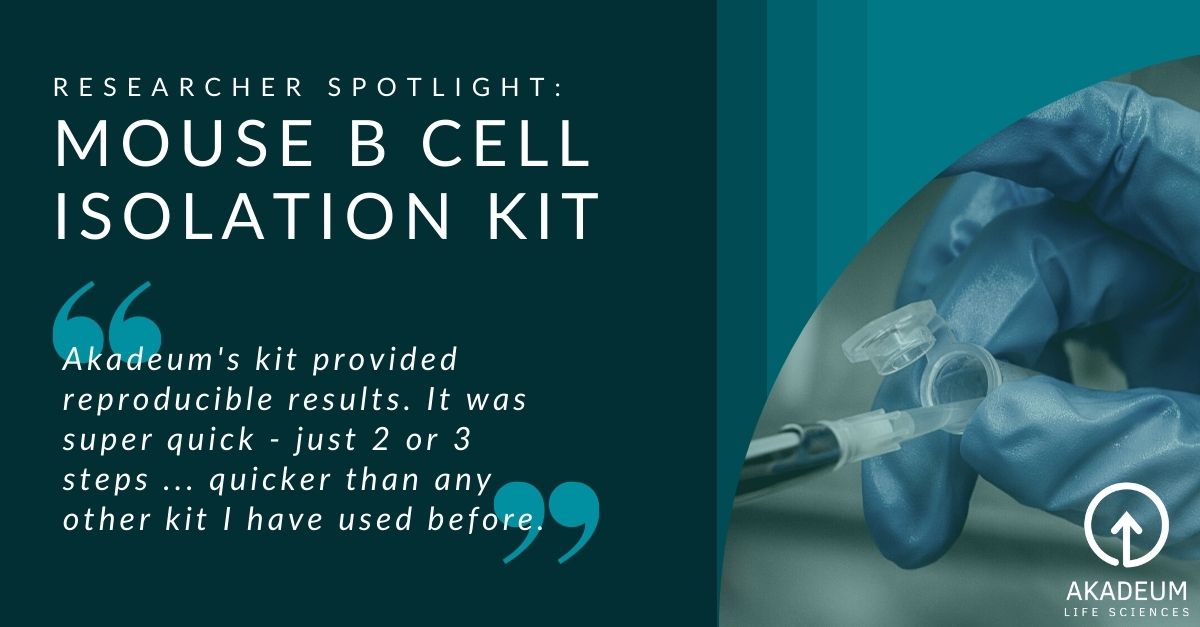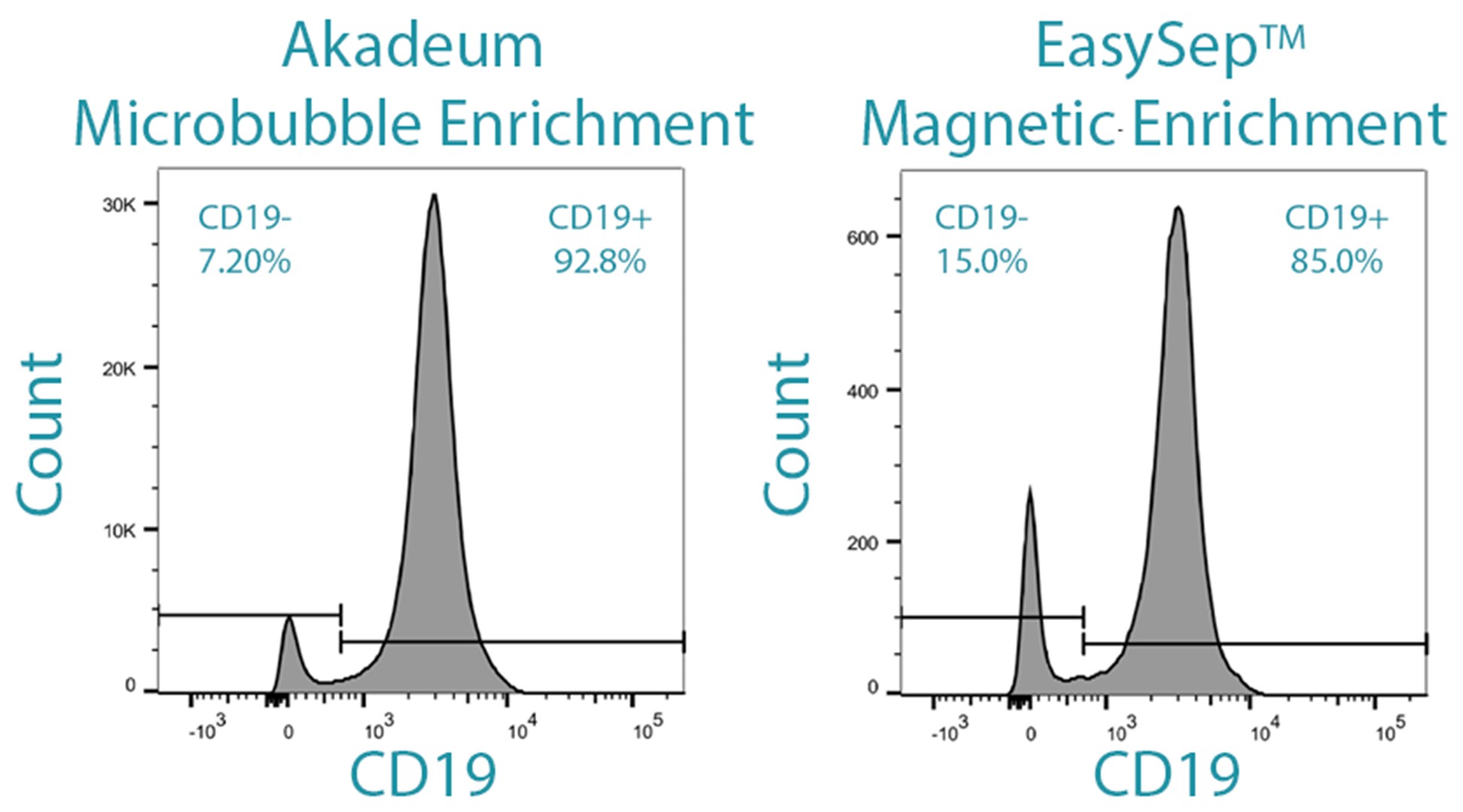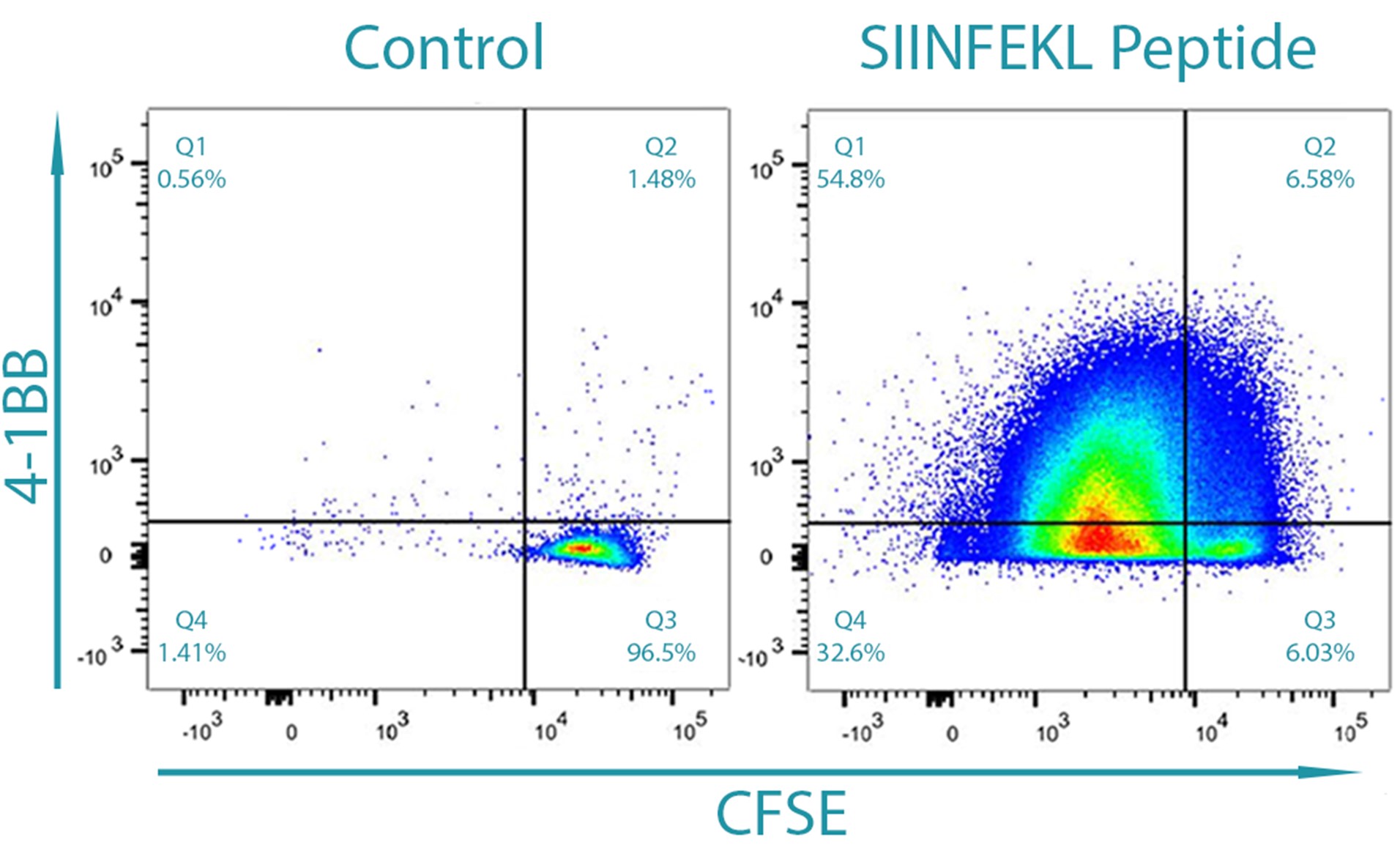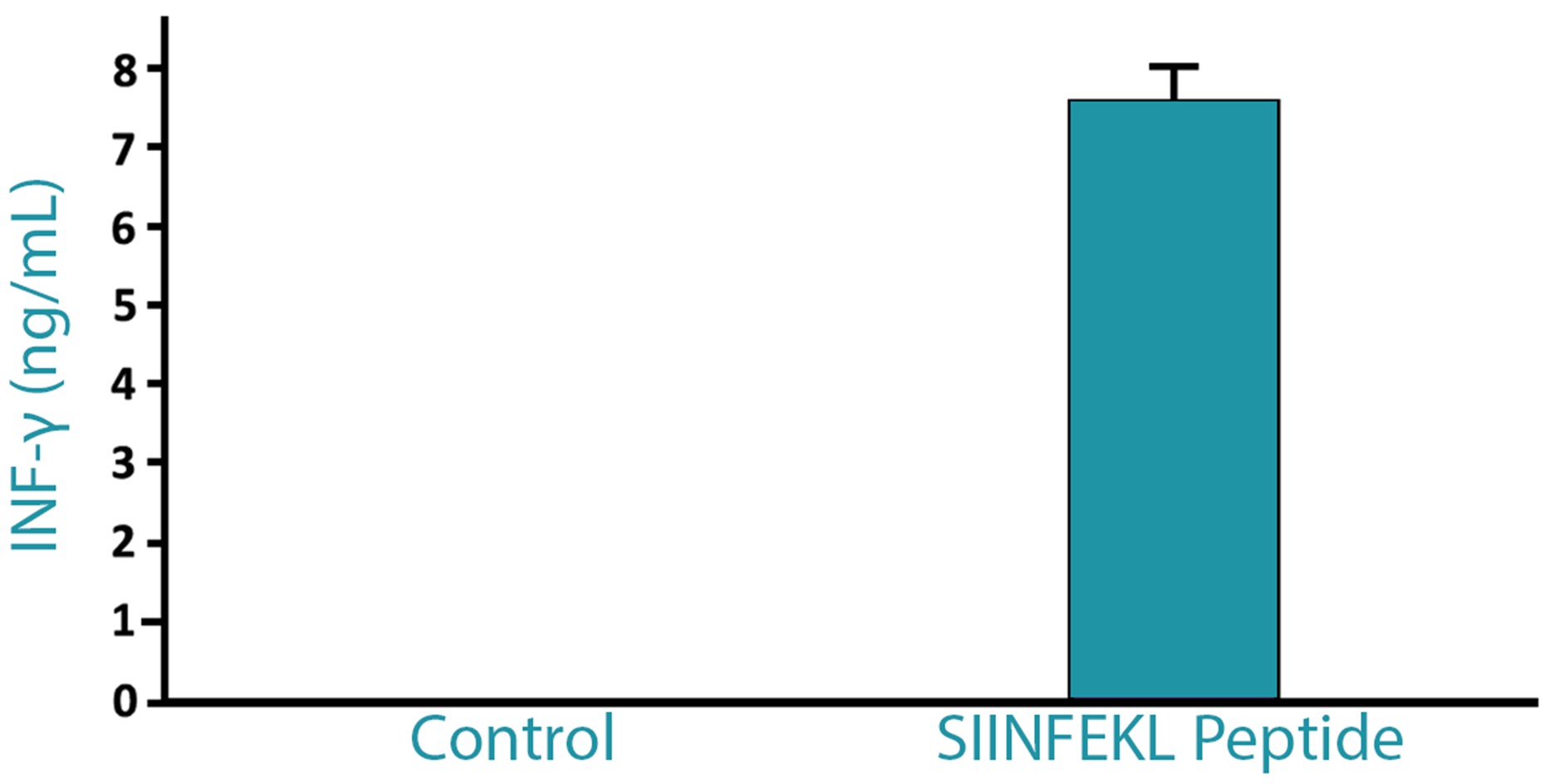Using Akadeum’s Mouse B Cell Isolation Kit to Study Anti-Tumor DNA Vaccines to B Cells as an Alternative to Chemotherapy
Updated on Jun 17, 2025 | Published on Mar 4, 2021 Share

Use of Akadeum’s gentle Mouse B Cell Isolation kit results in a highly enriched sample of B cells that are healthy and retain their antigen-presenting capabilities.
A researcher, Ichwaku Rastogi, from the Doug McNeel Lab at the University of Wisconsin, used the Mouse B Cell Isolation Kit from Akadeum Life Sciences to obtain a high purity isolation of viable, healthy B cells.
The researchers are looking into targeted delivery of anti-tumor DNA vaccines to B cells as a novel alternative to chemotherapy. To accomplish their groundbreaking work, they require cell separation methods that yield high quality cells without sacrificing purity. It is critical that the isolated B cells remain healthy and that the isolation method does not inherently change the cells’ antigen-presenting capabilities. The team was looking to obtain a highly-enriched population of viable B cells from splenocyte samples; using Akadeum’s Mouse B Cell Isolation Kit delivered an overall B cell purity of >92%, whereas they were only able to obtain 85% with a magnetic bead-based isolation kit. Not only did the microbubble enrichment protocol deliver significantly higher purity, it also maintained cell health and viability. These results have given the lab confidence that the microbubble isolation platform will allow them to investigate the efficacy of their vaccine candidates. Using Akadeum’s B Cell Isolation Kit empowers investigation of both the targeted delivery of the vaccine to B cells and also the ability of the delivered vaccine to trigger a cancer destructive immune response in T cells.
The Akadeum microbubble enrichment protocol can be performed directly in the sample container for quick and easy sample preparation that does not require additional equipment or expensive consumables like magnets or columns. The microbubble approach is exceptionally gentle on delicate cells and eliminates the need to expose cells to harsh chemicals or external forces like magnetic gradients from rare earth magnets.
Scope of the Project:
Objective:
Successfully obtain a highly-purified population of viable B cells from mouse splenocytes
Kit Used:
Mouse B Cell Isolation Kit from Akadeum Life Sciences and the corresponding EasySep™ kit for head-to-head comparison between the two methods
Procedure:
Mouse spleens were dissociated and the Akadeum Mouse B Cell Isolation kit or the corresponding EasySep™ kit were used to enrich B cells. Following enrichment with Akadeum’s microbubbles, the B cells were cultured overnight in the presence or absence of SIINFEKL peptide. Following overnight incubation, CFSE stained CD8+ T cells from OT-1 mice (SIINFEKL restricted MHC-1, CD8+ T cells) were added to the culture. After 3 days of co-culture, T cell activation (4-1BB expression and INF-γ production) and proliferation (loss of CFSE staining) were assessed.
Key Takeaways:
In this head-to-head comparison with a magnetic bead-based protocol, the Akadeum protocol delivered 92.8% purity as compared to 85.0% with magnetics. In addition to providing excellent purity, the gentleness of the microbubble isolation produced unblemished B cells that retained their antigen presenting potential.
Outcome:
The sample preparation using Akadeum’s Mouse B Cell Isolation Kit delivered a 7.8% higher purity of B cells as compared to magnetics in a faster, easier-to-use process than the EasySep™ kit. The final enriched sample of healthy cells retained their antigen-presenting capabilities, providing the research team with the tools needed to assess both the quality of the delivery method being developed for getting the vaccine to B cells and whether or not the vaccine being delivered would elicit an anticancer immune response.

Figure 1
Figure 1: Akadeum’s B Cell Isolation Kit provides high purity B cells
Mouse spleens were dissociated and the Akadeum Mouse B Cell Isolation kit or the corresponding EasySep™ kit were used to enrich B cells. FACS plots for CD19+ B cells show 92.8% purity with Akadeum microbubble enrichment (left) and 85.0% purity following EasySep™ magnetic bead-based enrichment (right).

Figure 2a

Figure 2b
Figure 2: Microbubble enriched B cells remain functional and retain their antigen presenting capacity
B cells isolated with the Akadeum B Cell Isolation Kit were cultured with either vehicle or SIINFEKL peptide. The following day CFSE labeled CD8+ T cells from OT-1 mice (SIINFEKL restricted MHC-1, CD8 T cells) were added to the culture. After 3 additional days in culture antigen presenting capacity was assessed by investigating proliferation and activation of the spiked in CD8+ T cells. A) FACS plots showing the proliferation indicator dye, CSFE, and a marker of activation, 4-1BB. B) Bar graph showing ELISA determined interferon gamma (INF-γ) levels. Loss of CSFE intensity in the SIINFEKL exposed cells shows these cells are proliferating. Similarly, production of INF-γ and increased expression of 4-1BB indicate activation of these T cells. Taken together these results demonstrate that microbubble enriched B cells maintain their antigen presenting capabilities.
Both Akadeum’s Mouse B Cell Isolation Kit and out Human B Cell Isolation Kit deliver highly enriched populations of healthy, viable B cells using a protocol that is fast, easy, and gentle. Ideal for processing delicate cells, Akadeum’s novel Buoyancy Activated Cell Separation (BACS™) occurs directly in the sample container without exposing cells to harsh chemicals or harmful shear forces.
If you are involved in cell isolation research, we’d love to hear from you! We are actively seeking new applications for our microbubble technology and would welcome the opportunity to learn more about your research and to discover if our microbubbles could help you in your work. Let’s schedule a time to talk!


